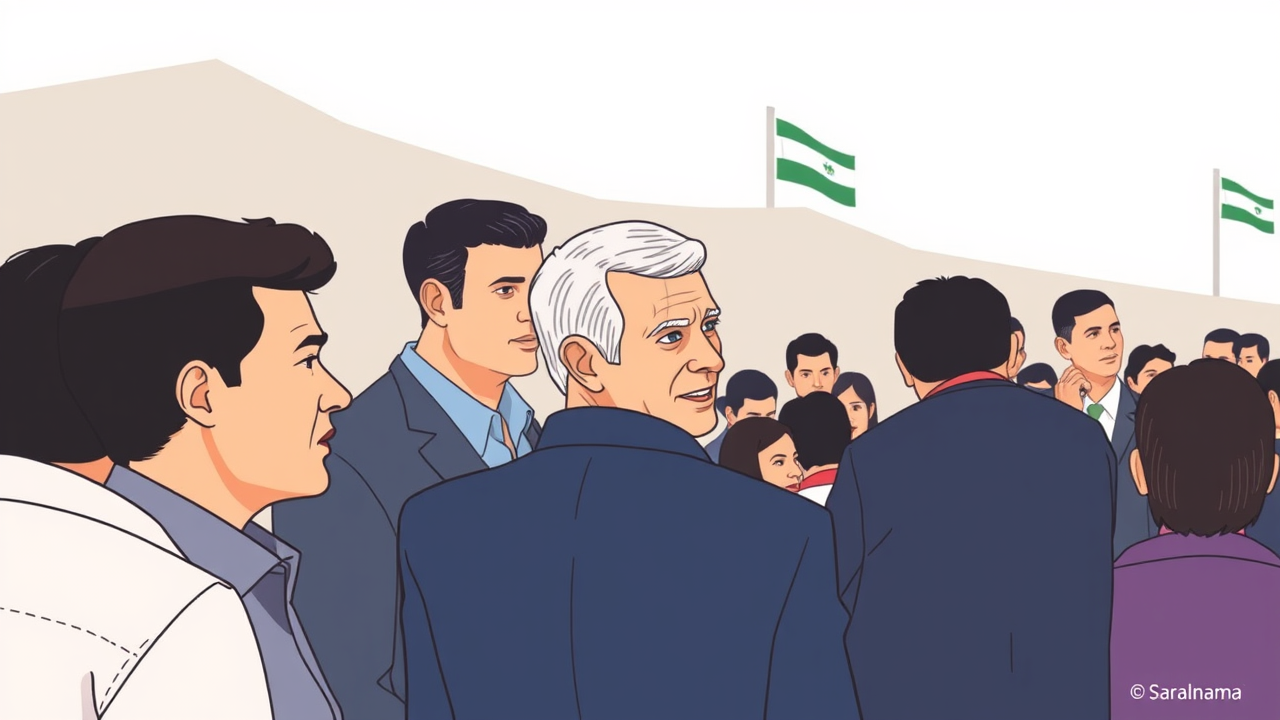Seemanchal, comprising Purnea, Kishanganj, Araria and Katihar, sits at the crossroads of borders with Bangladesh and Nepal. This region, with Muslim populations ranging from 39 per cent in Purnea to 68 per cent in Kishanganj, has long supported the Congress and RJD's M-Y formula. However, the 2020 assembly elections saw Asaduddin Owaisi's AIMIM win five seats here, tilting the balance towards the BJP-led NDA. Of the region's 24 seats in the outgoing House, the NDA held 12, AIMIM five, and the Mahagathbandhan seven. Four of the five AIMIM MLAs later crossed over to the RJD, revealing the instability of new political forces. The region now witnesses an opening up of political conversations, with voters questioning both the secular opposition and the BJP's minority-baiting tactics. The BJP's ghuspaithiya campaign, targeting alleged Bangladeshi infiltrators, faces sharp pushback from locals who demand evidence. They point out that if illegal immigrants exist, it reflects the failure of the Modi government at the Centre. The Special Intensive Revision of electoral rolls has been blamed on administrative lapses rather than deliberate disenfranchisement. Meanwhile, Rahul Gandhi enjoys visible support, seen as secular and fact-based. Voters debate whether Muslims need a separate Muslim party or should remain part of the political mainstream. Many argue that Muslims cannot form a government alone and must align with larger parties. The conversation reflects a community asserting its political agency while rejecting one-sided identity politics.

Border Region Sees Shifting Political Loyalties
Seemanchal's four districts have traditionally backed the Congress and RJD, supporting the M-Y formula. The region's proximity to Bangladesh and Nepal is visible in Bengali signboards and the Surjapuri dialect, a blend of Bengali, Hindi and Urdu. In 2020, Owaisi's AIMIM stunned observers by winning all five of its seats in this region, helping the BJP-led NDA secure an upper hand. The NDA held 12 of the region's 24 seats, with eight going to BJP and four to JD(U). The Mahagathbandhan secured seven seats, including five for Congress and one each for RJD and CPI(M-L). However, the AIMIM's success proved fragile when four of its five victorious MLAs defected to the RJD. This political churning has opened space for voters to question established alliances and explore new options, even as they debate whether Muslims require a separate party or should remain integrated in the political mainstream.
BJP's Infiltration Claim Faces Local Skepticism
The BJP's ghuspaithiya campaign, targeting alleged Bangladeshi infiltrators, dominates political discourse but faces sharp rebuttal from voters. In Line Bazaar's Jhanda Chowk, some claim illegal immigrants are everywhere, while others in Kabristan Chowk counter that locals would immediately report any foreigner. Voters point out that many Bengali-speaking residents are descendants of 1971 refugees given land by the government. They argue that if infiltrators exist, it reflects the failure of the Modi government after 11 years in power. Mohammad Afzal Husain compares the BJP's rhetoric to frogs croaking in the rain, saying the party uses ghuspaithiya as a code word for Muslim. The Special Intensive Revision of electoral rolls, despite causing confusion by deleting names of living voters and including deceased ones, is blamed on administrative lapses rather than deliberate disenfranchisement. Voters challenge the BJP to show evidence of illegal Bangladeshis uncovered by the SIR exercise.
Debate Over Muslim Representation and Mainstream Politics
In Baisi, where an AIMIM MLA crossed over to the RJD, voters discuss the need for a Muslim party. Mohammad Ghiasuddin laments that voting for change failed when AIMIM legislators defected. Mohammad Moin appreciates Owaisi for speaking for Muslims but criticizes the RJD for denying fair representation despite relying on Muslim votes. He claims that wherever RJD fields Yadav candidates, it invokes the M-Y formula, but where Muslims are candidates, Yadavs vote as Hindus for the BJP. However, ward member Aslam counters that Muslims cannot form a government alone and must align with others. He argues that Muslim participation in the mainstream is both reality and necessity, noting that even the BJP ruled for 20 years in Bihar with Nitish Kumar partly due to Muslim support. Aslam challenges the BJP to field Muslim candidates, saying Muslims are ready to vote for the party if given representation across all ruling arrangements.
Calls for Inclusive Politics Beyond Identity
In Kishanganj's Churipatti bazaar, businessman Sanaur Rashid offers a nuanced view of Owaisi, saying he provided new options but his aggressive supporters harm democracy. Shamsher Alam, a salesman in Bahadurganj, warns against replicating BJP's Hindu consolidation strategy among Muslims. He rejects the AIMIM's argument comparing the Sahani community's deputy CM post with Muslim underrepresentation, saying politics should not be about 2 per cent versus 18 per cent. Instead, he advocates focusing on unemployment, economy, health and education for all. Alam cautions that if Muslims push for power based on being 18 per cent of the population, Hindus might respond as 82 per cent. He notes that Hindus in Kishanganj have relatives elsewhere who would be affected by communal politics, warning that the very air of the nation is under threat. These voices reflect a desire to move beyond narrow identity politics towards inclusive democratic participation and equanimity.
Source: Link
